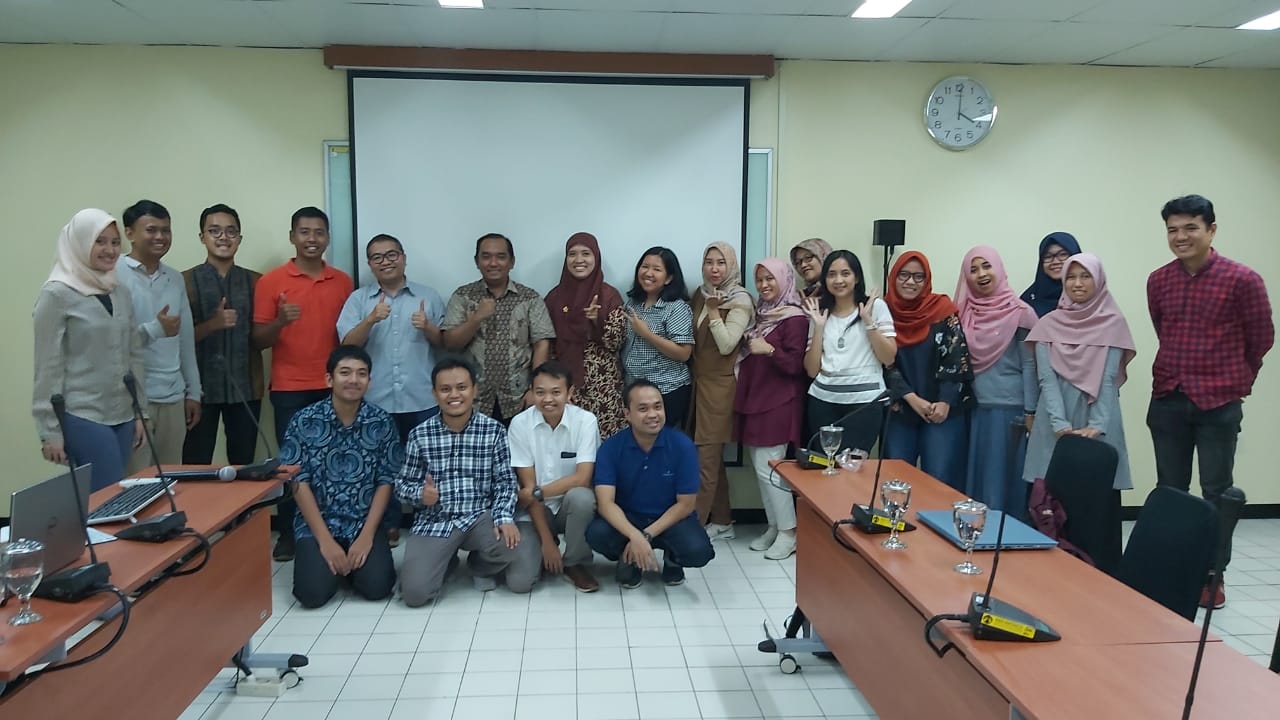Weekly Seminar of the Department of Economics FEB UI Raises the Topic of Determinants of Urban Housing among Low-Income People in Greater Jakarta
Depok – The Department of Economics FEB UI held a Weekly Seminar with the topic “Determining Topics for Urban Housing among Low-Income People in Jabodetabek” which took place in the Soenaryo Kolopaking room, Dean Building, 3rd Floor FEB UI, Depok.This weekly seminar discussion was presented by Djoni Hartono and Khoirunurrofik Lecturer at the Department of Economics, FEB UI.
In its discussion of the housing backlog issue The Inability of Government of Indonesia (GOI) and private institutions to meet housing, the backlog level became 13.5 million units in 2015 (based on data from the Ministry of Public Works and Public Housing, 2016), the consequences of population growth urban fast growth (from 49.8% in 2010 to 53.3% in 2015, projected to increase to 66% in 2035 (BPS, 2018) Housing planning and development are a major concern for the Government of Indonesia
Backlog problems in Jakarta Jakarta is the largest urban area with 10 billion inhabitants, Jakarta has the lowest percentage of home ownership (51.09%), deposit guarantee> 1 million
housing units in 2015 (Ministry of Public Works and Public Housing, 2016). Similar problems are found in Jakarta surrounding cities (Depok, Tangerang, Bekasi, Bogor) The housing development program is targeted at low-income people / low-income people (MBR). An understanding of household preferences is important for designing national housing policies for low income people.
Some studies analyze home ownership preferences for low income people. The purpose of this study is the preference of low-income people between buying or renting; preference for low income people to occupy public housing or private housing, input for the Government of Indonesia to design housing policies, low income people in the Jakarta metropolitan area
So the conclusion is permanent employment, a large number of family members, more knowledge in government programs in the housing sector, shorter travel time to work places and educational facilities, the possibility of having a higher house, more literacy about housing policy, and factors Indonesian Government forced eviction factors are the main driving factor for respondents to choose public housing. Travel time to work and health facilities is also a major consideration for occupying public houses. The interaction between distance to the station and location characteristics of public utilities increases the likelihood of choosing public housing.
Policies that can be taken are that the government must optimize the socialization of housing policies, Dissemination of low income housing policies for people of young marriage age, Distance to public facilities must be considered, especially distance to public transportation, education and health facilities, Housing policies for people people with irregular income to reduce non-performing loans (NPLs).

